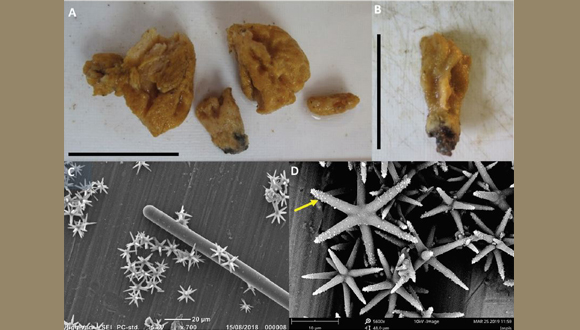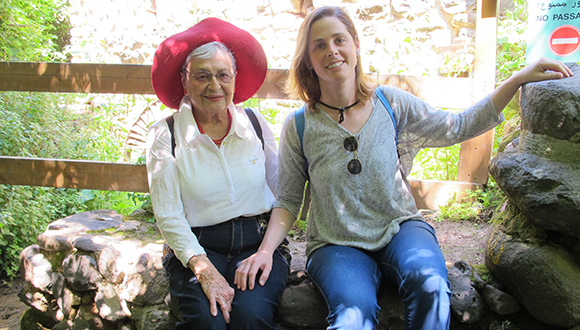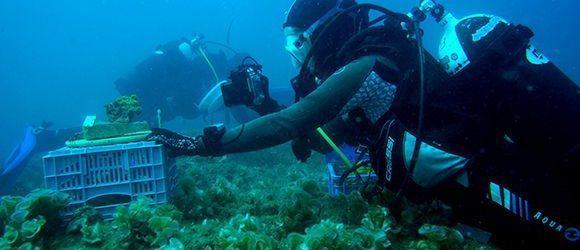Marine biologist names new species of sponge after Holocaust survivor grandmother, turning 95.
There are many ways to make a beloved grandmother feel special on her birthday, and Tal Idan, a doctoral student in Prof. Micha Ilan’s sponge lab at TAU’s School of Zoology, did something quite unconventional: She scientifically named a new sponge that she herself discovered, after her grandmother, Vera. And as Israel is observing the national Holocaust Remembrance Day (Yom HaShoa), Tal found her own way of eternalizing her grandmother’s identity as a courageous Holocaust survivor.
Finding a Needle in a Haystack
The process leading up to the naming of a new species of animals is complex and lengthy, and the naming is considered the icing on the cake. Tal Idan researches sponges on the Israeli coast of the Mediterranean.
Detecting and identifying new species for science is part of her research. “One of the benefits of working in deep waters and in new environments, is that there will always be new species – simply because these places have not yet been reached by anyone,” she explains. “There are a number of sponges that we have not yet been able to identify. These three, however, we discovered back in 2018, and since then we have been working to identify them.”

Vera the Sponge
Tal explains that this is a lengthy and intricate part. “Animal characterization is usually done by examining the genetic differences in the animals’ DNA. This won’t work with sponges, that have a really good DNA-repairing ability and their differences are not that big. One literally needs to characterize the structure of their body: “The skeleton of the sponges consists of skeletal needles in very beautiful shapes. You have to check the structure of the needles, measure and compare these to those of the other species that exist in the same genus. It took several years to produce good enough characterizations.”
Grandma Vera’s Love for the Sea
Like Tal, Vera loves the sea very much. Throughout many years, Vera and her late husband, Otto, used to swim in the sea in all weathers. Otto was Vera’s childhood sweetheart from the Czech Republic, who survived the Holocaust with her and immigrated with her to Israel. Even after his death and up until very recently, Vera would continue to go to the sea alone.

Tal and Vera, photographed during a trip in celebration of Vera’s 90th birthday
So far, Tal has successfully defined three new species for science. After consulting with her research colleagues, they decided that one of the sponges would be called Hemiasterella verai , named after grandma Vera. Tal explains that when a new species is named, it is common practice to include the origin of the name. Thus she was able to memorialize not only her dear grandmother’s name, but also the fact that she courageously survived the Holocaust. Tal says that it was important for her to do this for Vera while she is alive, and also to include this important fact.
Today, grandma Vera has three sons, seven grandchildren and 11 great-grandchildren, who all plan to attend her upcoming 95th birthday celebration. She always says they are her biggest victory over the Nazis.
Featured image: Tal Idan in the depths of the Mediterranean
